| Origem | Literatura Estrangeira |
|---|---|
| Quantidade de Páginas | 142 |
| Acabamento | Capa Dura |
| Autores | Brian Comp Stock |
| Idioma | Inglês |
| Edição | 0 |
| Selo | University of Pennsylvania Press |
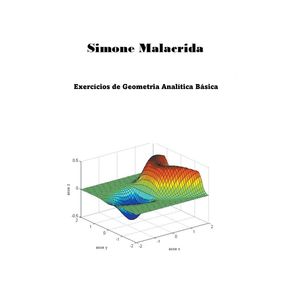 Exercícios de Geometria Analítica Básica
Exercícios de Geometria Analítica Básica
Draft2Digital
R$ 60,08 à vista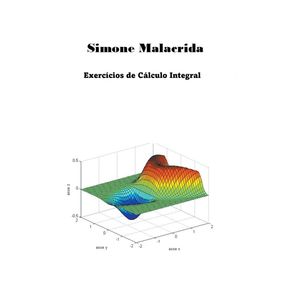 Exercícios de Cálculo Integral
Exercícios de Cálculo Integral
Draft2Digital
R$ 79,57 à vista North American Agroforestry, Third Edition
North American Agroforestry, Third Edition
John Wiley & Sons
R$ 934,79 ou até 3x sem juros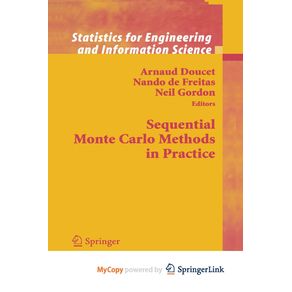 Sequential Monte Carlo Methods in Practice
Sequential Monte Carlo Methods in Practice
Springer Nature B.V.
R$ 350,36 ou até 3x sem juros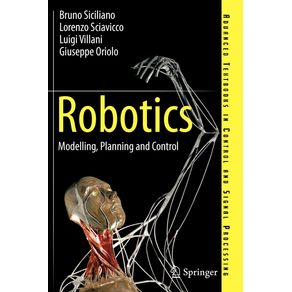 Robotics
Robotics
Springer Nature B.V.
R$ 352,63 ou até 3x sem juros X-Planes from the X-1 to the X-60
X-Planes from the X-1 to the X-60
Springer Nature B.V.
R$ 205,80 ou até 3x sem juros Old Clocks And Watches And Their Makers
Old Clocks And Watches And Their Makers
Legare Street Press
R$ 219,91 ou até 3x sem juros Robust and Adaptive Control
Robust and Adaptive Control
Springer Nature B.V.
R$ 343,13 ou até 3x sem juros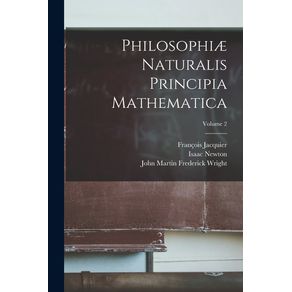 Philosophiæ Naturalis Principia Mathematica; Volume 2
Philosophiæ Naturalis Principia Mathematica; Volume 2
Legare Street Press
R$ 181,57 ou até 3x sem juros Building the French empire, 1600-1800
Building the French empire, 1600-1800
Manchester University Press (P648)
R$ 247,68 ou até 3x sem juros Minerals For the Genetic Code
Minerals For the Genetic Code
Acres U.S.A., Inc.
R$ 146,60 ou até 2x sem juros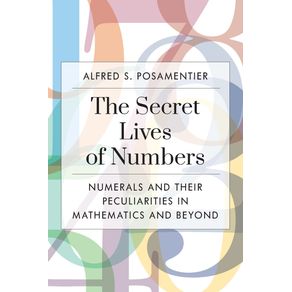 The Secret Lives of Numbers
The Secret Lives of Numbers
Rowman & Littlefield Publishing Group Inc
R$ 163,08 ou até 3x sem juros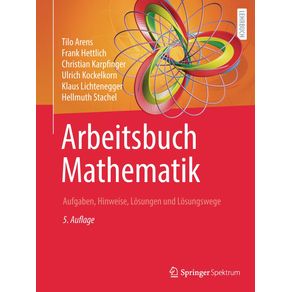 Arbeitsbuch Mathematik
Arbeitsbuch Mathematik
Springer Nature B.V.
R$ 363,67 ou até 3x sem juros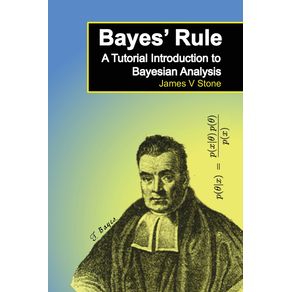 Bayes Rule
Bayes Rule
Sebtel Press - NH
R$ 137,23 ou até 2x sem juros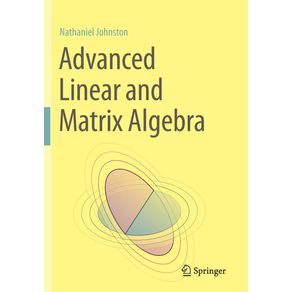 Advanced Linear and Matrix Algebra
Advanced Linear and Matrix Algebra
Springer Nature B.V.
R$ 563,27 ou até 3x sem juros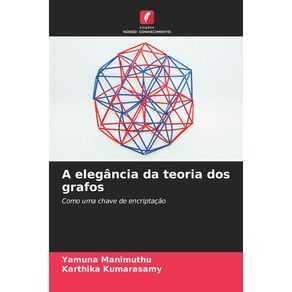 A elegância da teoria dos grafos
A elegância da teoria dos grafos
KS OmniScriptum Publishing
R$ 762,67 ou até 3x sem juros Time Series Analysis for the State-Space Model with R/Stan
Time Series Analysis for the State-Space Model with R/Stan
Springer Nature B.V.
R$ 337,49 ou até 3x sem juros Theoretical Numerical Analysis
Theoretical Numerical Analysis
Springer Nature B.V.
R$ 351,83 ou até 3x sem juros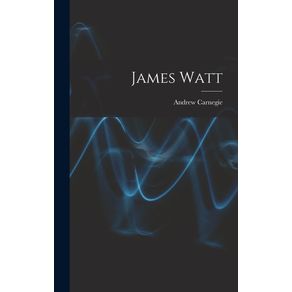 James Watt
James Watt
Legare Street Press
R$ 245,47 ou até 3x sem juros Robotics
Robotics
Springer Nature B.V.
R$ 352,63 ou até 3x sem juros How We Build a Wind Farm
How We Build a Wind Farm
Will Douglas
R$ 148,19 ou até 2x sem juros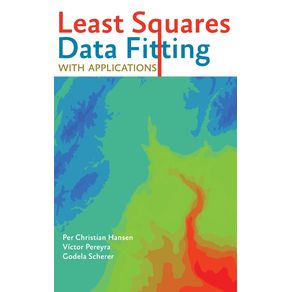 Least Squares Data Fitting with Applications
Least Squares Data Fitting with Applications
Hopkins Fulfillment Service
R$ 742,28 ou até 3x sem juros Mierda a la carta
Mierda a la carta
ibukku, LLC
R$ 283,74 ou até 3x sem juros Modeling and Control of Modern Electrical Energy Systems
Modeling and Control of Modern Electrical Energy Systems
John Wiley & Sons
R$ 753,80 ou até 3x sem juros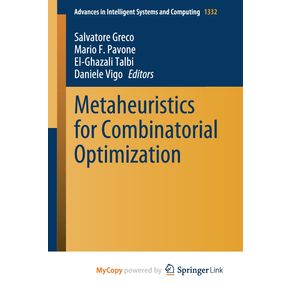 Metaheuristics for Combinatorial Optimization
Metaheuristics for Combinatorial Optimization
Springer Nature B.V.
R$ 329,06 ou até 3x sem juros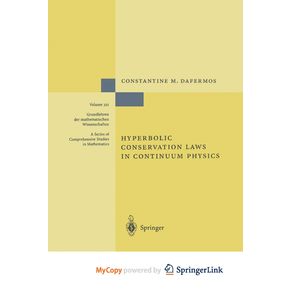 Hyperbolic Conservation Laws in Continuum Physics
Hyperbolic Conservation Laws in Continuum Physics
Springer Nature B.V.
R$ 342,61 ou até 3x sem juros Arbeitsbuch Mathematik
Arbeitsbuch Mathematik
Springer Nature B.V.
R$ 363,67 ou até 3x sem juros Design and Application of Electrical Machines
Design and Application of Electrical Machines
MDPI AG
R$ 615,38 ou até 3x sem juros Artificial Intelligence for Financial Markets
Artificial Intelligence for Financial Markets
Springer Nature B.V.
R$ 1.226,08 ou até 3x sem juros Advanced Linear and Matrix Algebra
Advanced Linear and Matrix Algebra
Springer Nature B.V.
R$ 563,27 ou até 3x sem juros Matemática das coisas ou coisas da matemática
Matemática das coisas ou coisas da matemática
Editora Viseu
R$ 33,90 à vista Exercícios de Geometria Analítica Básica
Exercícios de Geometria Analítica Básica
Draft2Digital
R$ 60,08 à vista Time Series Analysis for the State-Space Model with R/Stan
Time Series Analysis for the State-Space Model with R/Stan
Springer Nature B.V.
R$ 337,49 ou até 3x sem juros Theoretical Numerical Analysis
Theoretical Numerical Analysis
Springer Nature B.V.
R$ 351,83 ou até 3x sem juros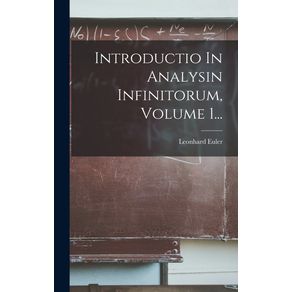 Introductio In Analysin Infinitorum, Volume 1...
Introductio In Analysin Infinitorum, Volume 1...
Legare Street Press
R$ 242,59 ou até 3x sem juros X-Planes from the X-1 to the X-60
X-Planes from the X-1 to the X-60
Springer Nature B.V.
R$ 205,80 ou até 3x sem juros Robust and Adaptive Control
Robust and Adaptive Control
Springer Nature B.V.
R$ 343,13 ou até 3x sem juros Least Squares Data Fitting with Applications
Least Squares Data Fitting with Applications
Hopkins Fulfillment Service
R$ 742,28 ou até 3x sem juros Building the French empire, 1600-1800
Building the French empire, 1600-1800
Manchester University Press (P648)
R$ 247,68 ou até 3x sem juros Arbeitsbuch Mathematik
Arbeitsbuch Mathematik
Springer Nature B.V.
R$ 363,67 ou até 3x sem juros Jigs and Fixtures
Jigs and Fixtures
Repro India Limited
R$ 136,71 ou até 2x sem juros Electric Power Plant Engineering
Electric Power Plant Engineering
Repro India Limited
R$ 300,65 ou até 3x sem juros Artificial Intelligence for Financial Markets
Artificial Intelligence for Financial Markets
Springer Nature B.V.
R$ 1.226,08 ou até 3x sem juros Mathematician with the Soul of a Poet
Mathematician with the Soul of a Poet
Bohannon Hall Press
R$ 182,43 ou até 3x sem juros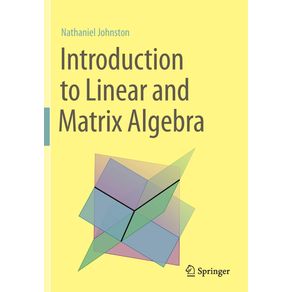 Introduction to Linear and Matrix Algebra
Introduction to Linear and Matrix Algebra
Springer Nature B.V.
R$ 569,09 ou até 3x sem juros